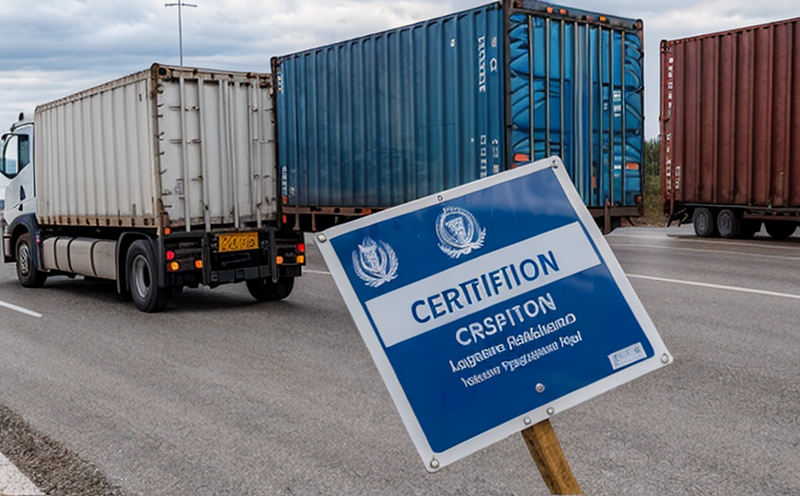
-
Transportation and Logistics Certification-
Certification for International and Global Logistics-
Certification in Cross-border Transport Regulations
We provide comprehensive solutions designed to help our clients mitigate risks, enhance performance, and excel in key areas such as quality, health & safety, environmental sustainability, and social responsibility.
Discover
For many years, our organization has been operating successfully, boasting modern laboratories that meet international standards. These laboratories are equipped with the latest technology devices and equipment, and we have built a strong team of experienced and trained personnel to operate them.
DiscoverWelcome to Eurolab, your partner in pioneering solutions that encompass every facet of life. We are committed to delivering comprehensive Assurance, Testing, Inspection, and Certification services, empowering our global clientele with the ultimate confidence in their products and processes.
Discover
-
Transportation and Logistics Certification-
Certification for International and Global Logistics-
Certification in Cross-border Transport RegulationsCertification in Cross-Border Transport Regulations: Ensuring Compliance and Safety
The cross-border transport industry has become increasingly complex, with multiple regulations and standards to navigate. As a result, certification has become essential for operators seeking to ensure compliance with these regulations and maintain the safety of their drivers and cargo.
One of the primary reasons for obtaining certification is to demonstrate adherence to international standards and guidelines. For instance, the European Unions (EU) Mobility Package, which aims to improve working conditions for truck drivers, has introduced new regulations on rest periods, driving hours, and driver qualifications. Compliance with these regulations is mandatory for operators operating in EU countries.
In addition to regulatory compliance, certification can also enhance an operators reputation and competitiveness in the market. Reputable customers often require suppliers to hold relevant certifications, such as the EUs ECMT (European Conference of Ministers of Transport) certificate or the CMR (Convention on the Contract for the International Carriage of Goods by Road) certificate.
Key Components of Certification:
Knowledge and Understanding: Operators must demonstrate a thorough understanding of cross-border transport regulations, including laws and standards governing working hours, driver qualifications, vehicle maintenance, and cargo handling.
Procedures and Protocols: A well-documented process for compliance with regulations, including procedures for reporting accidents or incidents, is essential. This includes a clear outline of responsibilities among staff members and regular audits to ensure adherence.
Benefits of Certification:
Improved Compliance: By undergoing certification, operators can identify areas of non-compliance and address them promptly, minimizing the risk of fines, penalties, or even vehicle seizures.
Enhanced Reputation: Certification demonstrates an operators commitment to regulatory compliance, safety, and quality, enhancing their reputation among customers and stakeholders.
Types of Certifications:
There are various certifications available for cross-border transport operators, each with its specific requirements and benefits. Some of the most common types include:

Environmental Impact Assessment
Environmental Impact Assessment: A Comprehensive Guide Environmental Impact Assessment (EIA) is a c...

Agricultural Equipment Certification
Agricultural equipment certification is a process that ensures agricultural machinery meets specific...

Lighting and Optical Device Testing
Lighting and Optical Device Testing: Ensuring Performance and Safety Lighting and optical devices a...

Healthcare and Medical Devices
The Evolution of Healthcare and Medical Devices: Trends, Innovations, and Challenges The healthcare...

Fire Safety and Prevention Standards
Fire Safety and Prevention Standards: Protecting Lives and Property Fire safety and prevention stan...

Automotive Compliance and Certification
Automotive Compliance and Certification: Ensuring Safety and Efficiency The automotive industry is ...

Railway Industry Compliance
Railway Industry Compliance: Ensuring Safety and Efficiency The railway industry is a critical comp...

Pharmaceutical Compliance
Pharmaceutical compliance refers to the adherence of pharmaceutical companies and organizations to l...

Battery Testing and Safety
Battery Testing and Safety: A Comprehensive Guide As technology continues to advance, battery-power...

Renewable Energy Testing and Standards
Renewable Energy Testing and Standards: Ensuring a Sustainable Future The world is rapidly transiti...

NEBS and Telecommunication Standards
Network Equipment Building System (NEBS) and Telecommunication Standards The Network Equipment Bu...

MDR Testing and Compliance
MDR Testing and Compliance: A Comprehensive Guide The Medical Device Regulation (MDR) is a comprehe...

Cosmetic Product Testing
The Complex World of Cosmetic Product Testing The cosmetics industry is a multi-billion-dollar ma...

Environmental Simulation Testing
Environmental Simulation Testing: A Comprehensive Guide In todays world, where technology is rapidl...

Electromechanical Safety Certification
Electromechanical Safety Certification: Ensuring Compliance and Protecting Lives In todays intercon...

Military Equipment Standards
Military Equipment Standards: Ensuring Effectiveness and Safety The use of military equipment is a ...

Consumer Product Safety
Consumer Product Safety: Protecting Consumers from Harmful Products As a consumer, you have the rig...

Food Safety and Testing
Food Safety and Testing: Ensuring the Quality of Our Food As consumers, we expect our food to be sa...

Pressure Vessels and Installations Testing
Pressure Vessels and Installations Testing Pressure vessels are a critical component of various ind...

Product and Retail Standards
Product and Retail Standards: Ensuring Quality and Safety for Consumers In todays competitive marke...

Aviation and Aerospace Testing
Aviation and Aerospace Testing: Ensuring Safety and Efficiency The aviation and aerospace industr...

Construction and Engineering Compliance
Construction and Engineering Compliance: Ensuring Safety, Quality, and Regulatory Adherence In the ...

IT and Data Center Certification
IT and Data Center Certification: Understanding the Importance and Benefits The field of Informatio...

Hospitality and Tourism Certification
Hospitality and Tourism Certification: Unlocking Opportunities in the Industry The hospitality and ...

Chemical Safety and Certification
Chemical safety and certification are critical in ensuring the safe management of products and proce...

Trade and Government Regulations
Trade and government regulations play a vital role in shaping the global economy. These regulations ...

Transportation and Logistics Certification
Transportation and Logistics Certification: A Comprehensive Guide The transportation and logistics ...

Energy and Sustainability Standards
In today’s rapidly evolving world, businesses face increasing pressure to meet global energy a...

Electrical and Electromagnetic Testing
Electrical and Electromagnetic Testing: A Comprehensive Guide Introduction Electrical and electrom...

Industrial Equipment Certification
Industrial equipment certification is a critical process that ensures industrial equipment meets spe...